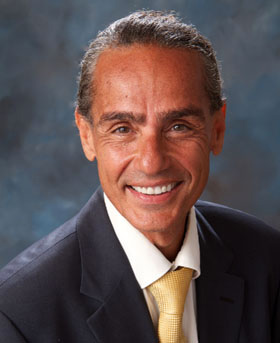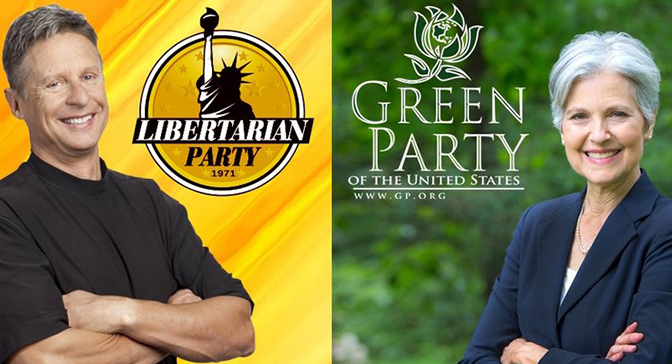The Front Page On-line, Culver City, CA
By Michael Feinstein
March 21, 2016
If the presidential campaign has shown us anything, it is that traditional political lines are blurred if not irrelevant.
That should tell us something about which voices we should be hearing in presidential debates and forums, and concurrently, how we should be rethinking the role of political parties and electoral systems in this country.
The George Wallace-style, white nationalist populism of the Donald Trump campaign has little in common with the Wall Street/big business faction of the Republican party. The social democracy promoted by Bernie Sanders has only a kissing-cousin relationship to the Democratic Leadership Council centrism of Hillary Clinton.
Yet we are treating the Republican and Democratic party primaries as battles for the soul of each party.
Instead, they should be framed as explicit fights to gain control of an enormous economic and political asset — guaranteed ballot access in all 50 states and the use of franchised political party brand names that get 99 percent of the media coverage.
Which brings us to tonight’s presidential candidate forum hosted by CNN. This forum replaces a Republican debate scheduled for tonight by Fox, which fell apart when Mr. Trump refused to participate, a typical frontrunner strategy, by not giving the others an equal platform with him.
Mr. Trump has that power because corporations (who own media companies) choose who gets presidential television coverage, and corporations make their decisions based upon their bottom line, not upon principles of democracy.
One reason Ralph Nader ran for president as a Green Party candidate in 1996 and 2000 was the support by Bill Clinton and especially Al Gore of the 1996 Telecommunications Act. This document gave away billions of dollars’ worth of broadcast spectrum access to telecom giants for next to nothing. At a minimum, the Telecommunications Act should have required a menu of civic and governmental services to promote a healthy democracy, including free television time for all nominees of all political parties on enough ballots to mathematically win the presidency.
Which brings us to tonight’s CNN presidential candidates forum, featuring separate sit-down sessions with three Republicans and two Democrats. But why not Green candidate Jill Stein and Libertarian candidate Gary Johnson? What would we gain — other than being honest with the American people that there are more than two political parties?
King Connection
Ms. Stein would make the connection that Martin Luther King often did — between war/militarism abroad and the failure to address social and economic issues at home, something neither Mrs. Clinton nor Mr. Sanders has done meaningfully. Ms. Stein likely would force both of them to move leftward on this issue, as Mr. Sanders has done to Mrs. Clinton and others, or at least exposed the difference if they didn’t
Mr. Johnson — former governor of New Mexico — is a strong advocate for nationwide marijuana legalization. This comes at a time when there is a movement for criminal justice reform by some Republicans. Mr. Johnson could give this strength and open up space to support legalization on that side of the political spectrum.
Greens also support full legalization of marijuana. This shows how, in a multi-party democracy, there would be more interesting alliances and commonalities in multiple directions, instead of today’s two-party Washington gridlock.
Why don’t we have a true multi-party democracy with legislatures elected by proportional representation, like most of the industrialized democracies we often compare ourselves with?
One of this year’s great ironies is that Democrats and Republicans write the ballot access and electoral system laws. Generally, they have done it to keep others out. Courts often intervene to promote fair access. But now they are losing control of their own parties, at least on the presidential level.
Ideally this will lead to an opening of our presidential system to a range of needed reforms — including greater debate inclusion, fairer ballot access laws and increased public financing through a variety of means, including guaranteed free television time to all candidates on a sufficient number of ballots.
Ultimately there is no reason — other than our U.S. winner-take-all electoral system that creates forced marriages — that the Republican Party shouldn’t divide into several parties (Constitution, Libertarian, Republican, other?), all capable of gaining representation. Under a proportional representation system, they could be clearer about their message and who they really represent.
Similarly those calling themselves the Democratic wing or the Progressive Democrats in the Democratic Party should be in a party that more clearly shares their values. In countries that have proportional representation elections. instead of the winner-take-all elections we have the U.S., there usually is already a Green Party with seats in state and federal legislatures, and sometimes also a more distinct left party.
For president, imagine a national popular vote conducted by ranked choice voting, where you could rank your votes among several choices, representing the true diversity in this country. If your first choice didn’t win, your vote would go to your second and third choices until one candidate achieves a majority.
Which brings us back to tonight’s false debate on CNN. The issue isn’t only what those five individuals think. It is why we aren’t hearing other voices and why aren’t we talking about the reforms that would bring that about.
 Mr. Feinstein is a spokesperson for the Green Party of California and a former mayor and City Council member in Santa Monica. He can be reached at mfeinstein@feinstein.org.
Mr. Feinstein is a spokesperson for the Green Party of California and a former mayor and City Council member in Santa Monica. He can be reached at mfeinstein@feinstein.org.
